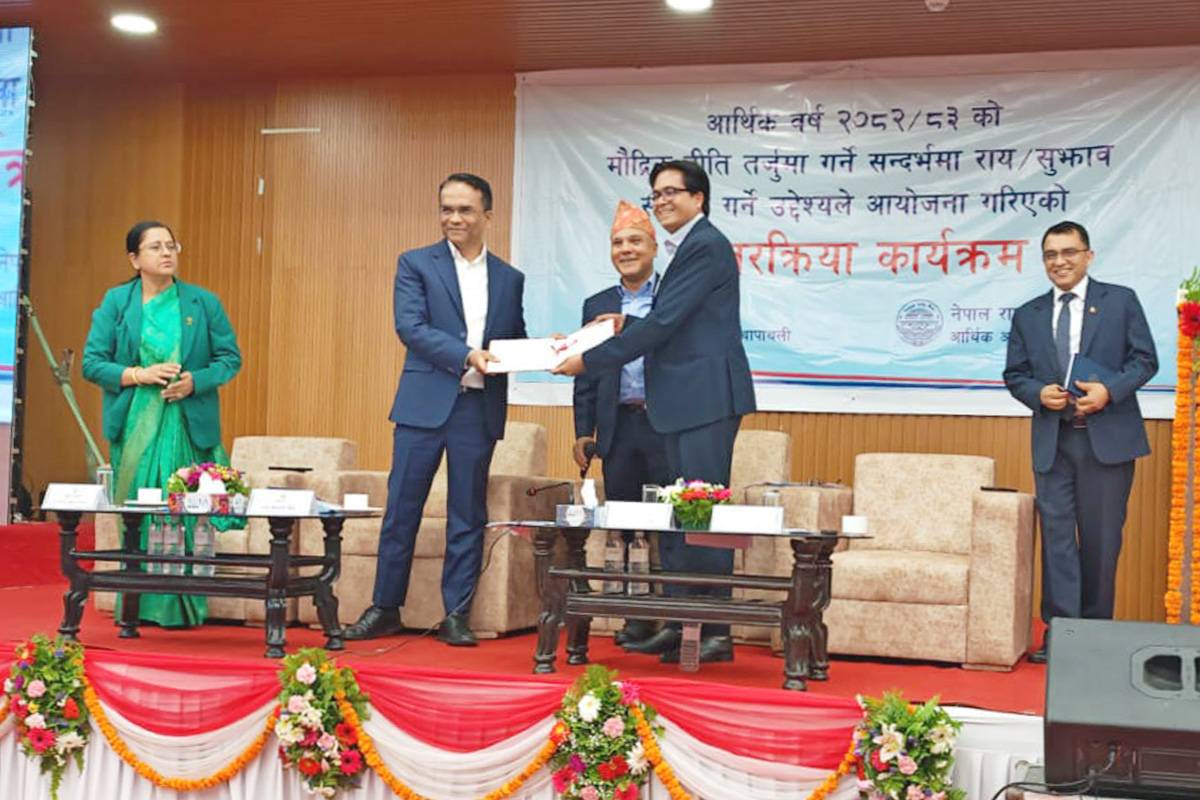
KATHMANDU: Confederation of Nepalese Industries (CNI) President Rajesh Kumar Agrawal handed over recommendations on the monetary policy for fiscal year 2025/26 to Nepal Rastra Bank (NRB) Governor Dr Biswo Nath Poudel at a programme held at the NRB’s central office in Kathmandu on Friday.
The proposals are intended to support significant reforms to the central bank’s monetary framework in line with the upcoming budget.
Speaking at the event, CNI President Agrawal said the monetary policy should back the budget’s targets, revitalise the economy and encourage the private sector to invest. He added that boosting market confidence and reviving growth must be central objectives.
CNI’s recommendations outline a multi-sector strategy to boost credit demand, revive industrial activity and strengthen macroeconomic stability. Domestic demand has improved marginally but remains subdued: industrial capacity utilisation is at 62%, up from 40% last year but still below pre-pandemic levels, while banks hold roughly Rs 600 billion in idle loanable funds.
To enhance rate transmission and market efficiency, CNI has urged the NRB to replace the base-rate system with international benchmarks such as the Marginal Cost of Funds-based Lending Rate (MCLR) and the External Benchmark Lending Rate (EBLR). It also calls for lifting restrictions on lending below the base rate and abolishing the five-percentage-point cap between term and savings deposit rates.
On liquidity and capital requirements, CNI proposes retaining the current Statutory Liquidity Ratio with flexibility for tighter market conditions. It recommends suspending the 0.5% Counter-Cyclical Capital Buffer in view of muted credit growth and low credit-to-GDP ratios, and reducing the 45% directed-lending quota or allowing part of it to count towards Tier 1 capital.
For structural reform, CNI presses for merit-based appointments to the NRB board and the establishment of a formal Monetary Policy Committee comprising central bank officials and external experts. It also seeks a rollback of stricter non-performing-loan classifications and onerous group-lending rules.
To support working-capital financing, CNI recommends industry-specific benchmarks, extended cash-cycle assessments of up to 120 days and seasonal loan adjustments. In the microfinance sector, it urges reinstatement of the Rs 1.5 million lending ceiling and removal of the 15% dividend cap to bolster rural credit.
CNI has stressed the need to align monetary and fiscal policies, particularly given the government’s Rs 362 billion domestic-borrowing target, warning that poor coordination could curb private-sector credit and increase rate volatility.
The CNI has expressed confidence that adopting these recommendations will restore market confidence, spur private investment and generate employment nationwide.






